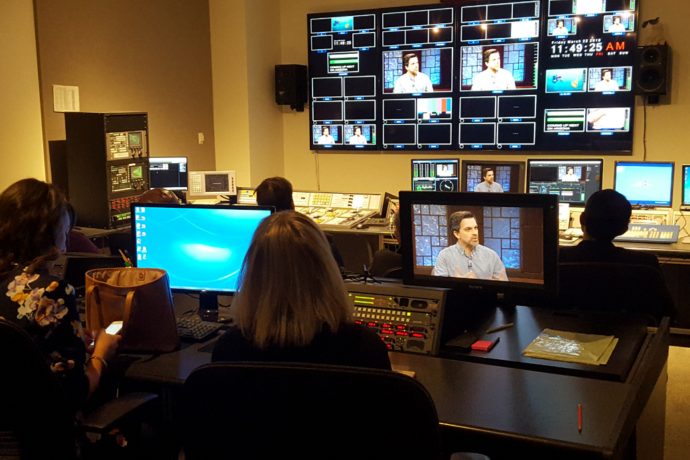ACLS Announces the 2022 Luce/ACLS Program in Religion, Journalism & International Affairs Grantees
Public Understanding of Global Religions

The American Council of Learned Societies (ACLS) is pleased to announce the recipients of the Luce/ACLS Collaborative Programming Grants in Religion, Journalism & International Affairs.
The grants, which are made possible by the Henry Luce Foundation, support projects at US colleges and universities that connect scholars in the humanities and interpretive social sciences with journalists and media outlets to improve public understanding of the many roles religion plays in global public life. Each project team will receive $45,000 for these interdisciplinary collaborations.
“These innovative projects demonstrate just how integral the humanities, and in particular the study of religion, are to understanding our complex world,” said Joy Connolly, president of ACLS. “We are thrilled to work with the Henry Luce Foundation to support these dynamic inter-institutional and cross-sector collaborations that offer diverse models for advancing public knowledge.”
The 2022 awardees and their host universities are:
- Decolonizing the Representation of Muslim Women in the Media: Training Next Generation Journalists – University of California, Davis
The past two decades witnessed massive escalations of Islamophobia, with the media their most powerful vehicle. Disproportionally, Islamophobic hate crimes have targeted Muslim women, gendering Islamophobia. This project assembles experts on women and Islamic cultures and journalists for a year-long seminar to train early career journalists in the diverse histories of women and Islamic cultures producing teaching modules/products for universities and templates for media organizations on decolonizing the representation of women of color and deracializing religion.
Project leads: Suad Joseph (University of California, Davis), Nurhaizatul Jamil (Harvard University), Shaheen Pasha (Pennsylvania State University), Elora Shehabuddin (Rice University), and Zeina Zataari (University of Illinois at Chicago)
- The Politics of Religion in Africa: Social Movements, Digital Media, and the Global Public Sphere – The New School
This project brings together scholars of Africa and religion, African journalists, and students at three institutions in the Greater New York City Area—The New School, Lafayette College, and Yale University—to discuss the politics of religion in Africa over an eighteen-month period. Through long-form journalism published on this platform, student coursework, a YouTube series, and two public workshops, the project aims to strengthen connections between American scholars and African journalists through the theme of religious politics.
Project leads: Sean Jacobs (The New School), Christopher J. Lee (Lafayette College), and Daniel Magaziner (Yale University)
- Commander of the Faithful: A Journalistic Examination of Religious and Cultural Diversity Under Political Islam in Morocco – New York University
The project brings together graduate students from the New York University Arthur L. Carter Journalism Institute’s Global Beat program who have an additional Middle East and North Africa area concentration; and students enrolled in the Near Eastern Studies program at the university’s Hagop Kevorkian Center for Near Eastern Studies who seek to develop their research, interviewing, and writing skills to appeal to a broader, public audience. Programming will include an intensive multi-week initial learning and research period, followed by a reporting trip in Morocco to develop multimedia stories which will be offered for professional publication.
Project leads: Mohamad Bazzi (New York University), Kira Kay (Bureau for International Reporting), and Jason Maloney (New York University)
Learn more about these and past awarded projects.
Visit the Henry Luce Foundation’s website for more information about the program in Religion and Theology and its grantmaking.
Read more about the Luce/ACLS Program in Religion, Journalism & International Affairs and additional ACLS programs for scholars in the humanities and interpretive social sciences.

